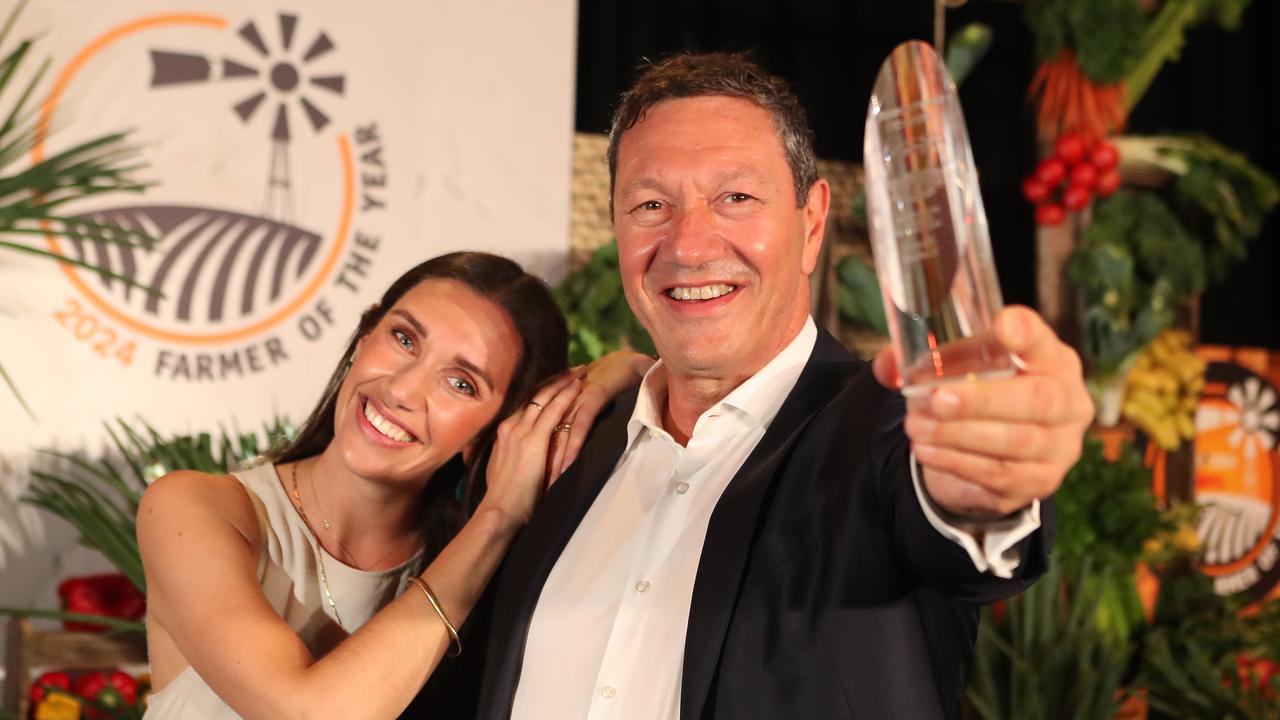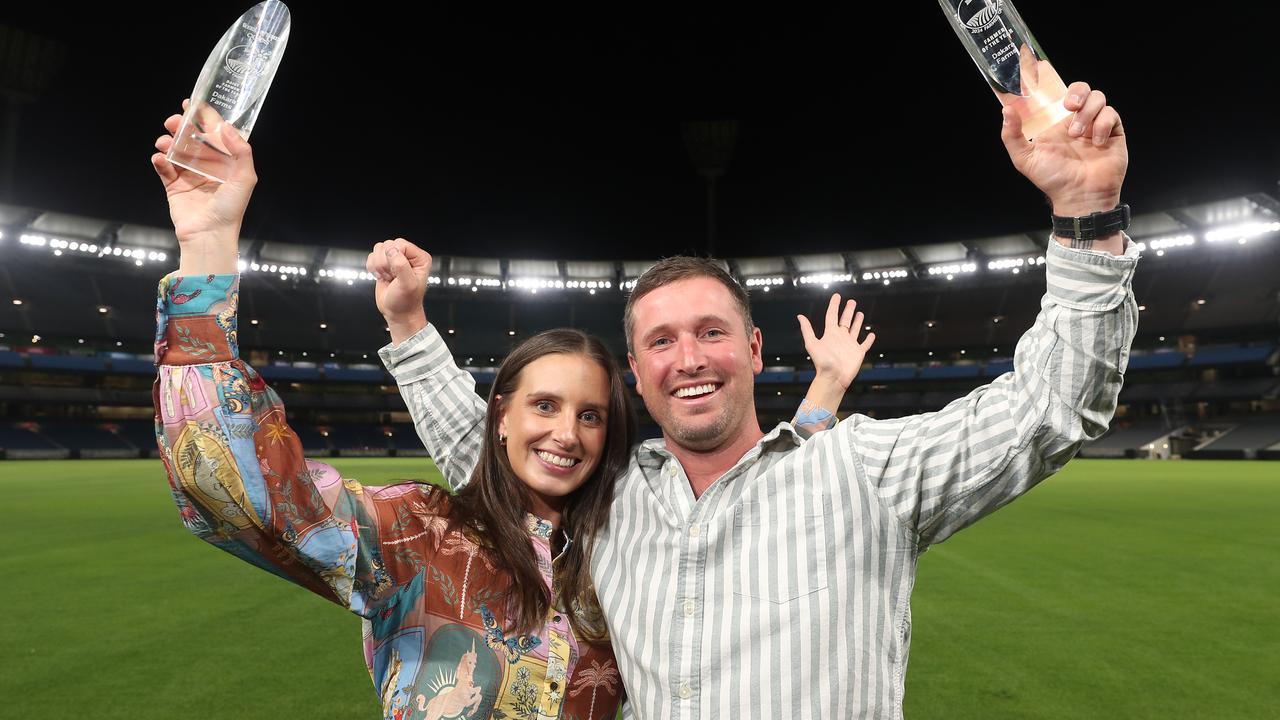Flavorite Glasshouse Tomatoes: Warragul business grows for it
FLAVORITE reaps the rewards of being at the cutting edge of the hydroponics industry, writes JAMES WAGSTAFF.
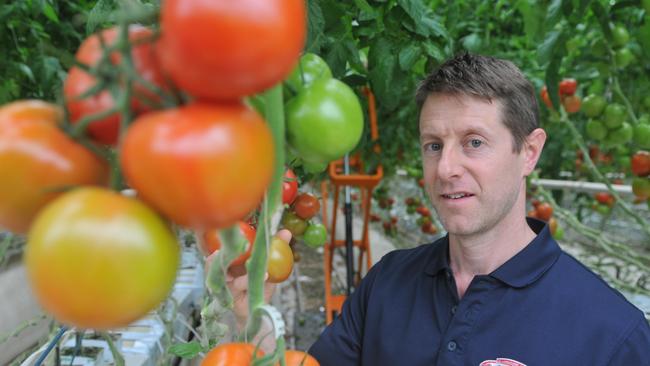
SOPHISTICATION and innovation — it is a tried-and-true approach to farming that is paying significant dividends in the paddocks around Warragul in West Gippsland.
In the space of 25 years, two families — the Millises and Nichols — have transformed their Flavorite hydroponic tomato venture into a multi-million-dollar vertically integrated business that not only grows its fruit but packs it, delivers it and markets it, too.
Flavorite, which has expanded beyond its core tomato origins into capsicums, cucumbers, palermos and eggplants, is now one of the largest family owned glasshouse fresh produce business in the nation.
It prides itself on using state-of-the-art technology to reduce costs and increase production.
The meteoric rise of the business, which was founded in 1993 when former banana marketer Mark Millis teamed with his former market partner Warren Nichol, who had spent a lifetime marketing fresh produce, speaks for itself.
When they started Mark and Warren had 3000sq m of tomato plants under production, yielding about 120 tonnes of fruit, and employed a handful of staff. Now, about 250,000sq m is devoted to production, yielding 13,000 tonnes of fruit, and staff numbers peak at 350 in busy periods.
And now, such is the consumer appetite for Flavorite product, it graces the shelves of Australia’s biggest retail chains.
In a further sign of the business’ commitment to the industry, work will start in December on adding another 40,000sq m of glasshouses, costing an estimated $8 million.
“We’ve come a long way,” says Chris Millis, who is Mark’s son and works in the business as farm manager.
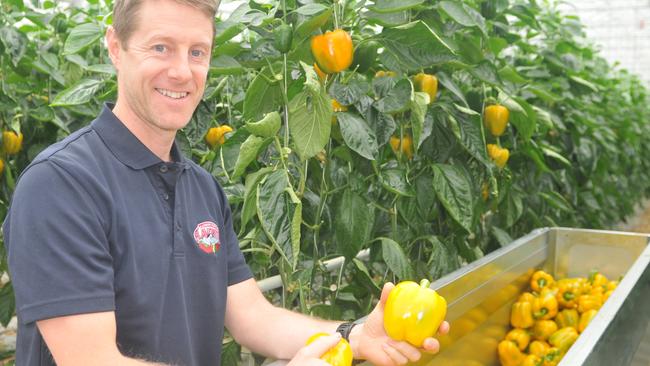
TECH HEADS
CHRIS attributes the success of the business to its ability to incorporate new ideas and technology.
In the early days, Flavorite was able to grow 40kg of fruit a square metre. Now advances in technology and growing methods mean they can produce double that.
Glasshouses are now 7m high, or 3m higher than the original plastic structures used when the business started. Chris said glass provided “better environmental control — a more stable climate and much better light transmission — and light equals production”.
“It is more expensive to build but it is less maintenance,” Chris said. “With glass, we have roof-cleaning machines to scrub and polish it.”
At Warragul, Flavorite grows truss tomatoes, cherry truss tomatoes, cherry loose tomatoes, red, yellow and green capsicums and palermos (sweet peppers).
Capsicum plantings have increased in the past five years making up about 50 per cent of production.
Warragul accounts for about half of Flavorite’s output with suppliers from Victoria, NSW and South Australia growing lines of tomatoes as well as cucumbers and eggplants.
The business also has a joint venture at Katunga, in northern Victoria, with 10ha of glasshouses producing cherry tomatoes to assist with year-round supply.
About 70 per cent of Flavorite’s output is tomatoes. “Rather than go for real niche products, we wanted to do big-line products really well — so high taste, high quality.”
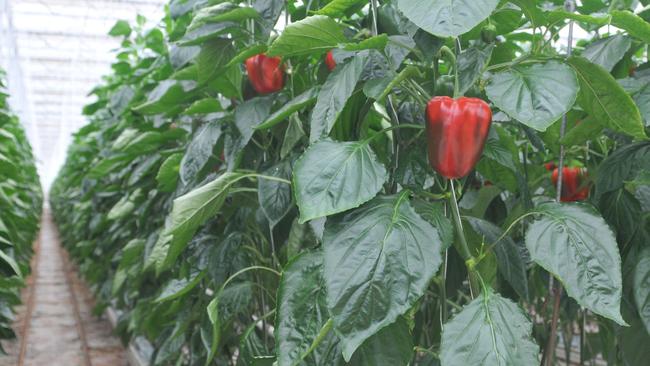
SUMMER LOVIN’
CHRIS said while fruit was grown year round, production was higher in summer due to temperature and sunlight.
Flavorite also operates a nursery where it propagates and grafts seedlings for its own use and supply to contract growers.
Plants enter the greenhouse at the advanced stage one week off flowering. Planting is once a year, usually in the middle of winter.
Plants are grown in a rock-wool medium, take about eight weeks to reach production and then one “cluster” a week is picked for 40-42 weeks.
Plants can end up being 10-15m long and are trained up on string from hanging gutters, a technique the business introduced to Australia.
Chris said conditions inside the greenhouses were perfect for growing with a 24-hour temperature of about 18-20C.
Natural gas is burned for heating, a condenser captures the flue gases for increasing CO2 and pumps it into the greenhouse via layflat tubing.
Heating, Chris, said, was key to maintaining quality of fruit, speed of production and disease resistance, adding natural gas was “a clean product to use, at the right price and you get CO2 from it as well”.
Most of Flavorite’s water supply is rainfall captured from the roof of the facility with additional water sourced from bores. Chris said it took about 12 litres of water to produce a kilogram of fruit, much less than the 60 litres required to produce field tomatoes.
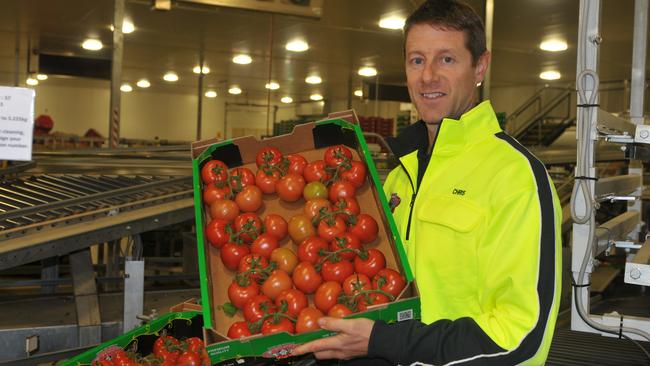
LOGGED ON
WHEN irrigating, the plant is offered water based on sunlight and consumption, which is monitored by computer technology and adjusted accordingly.
With plants using about 70 per cent of the water offered to them, the excess is sterilised with UV, mixed with fresh water and reused.
With windows to the glasshouses open at times, Chris said pests and diseases could be a problem, particularly in older, plastic structures.
This is becoming less as the business introduces technology featuring insect screens. There is also an extensive integrated pest management program, with “beneficial insects”, in an effort to reduce spraying.
The business operates on a five-day-a-week, single shift roster. Chris cited labour as the business’ biggest cost.
Flavorite employs between 250 and 350 staff, with half the workforce made up of locals and the other half backpackers, mostly from Taiwan.
He said while the greenhouse was labour-intensive, with plant workers manually performing jobs such as pollinating, pruning and picking, technology had been introduced in the nursery removing the need for “a lot of manual handling and bending jobs”.
In the packing shed, the unloading of harvest trolleys, storage, delivery to a packing line and palletisation has become more mechanised.
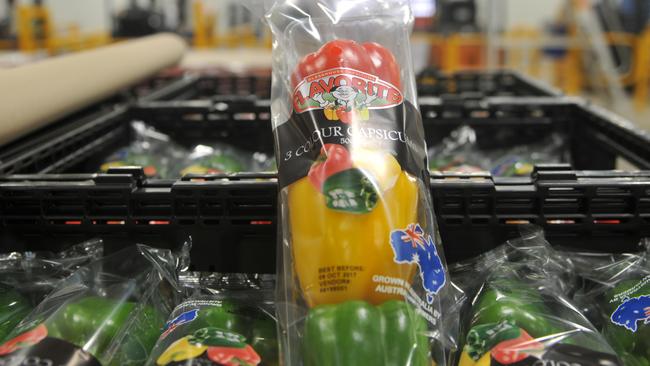
BEARING FRUIT
ABOUT 13,000 tonnes of fruit is picked and packed annually at Warragul. Chris said a big week could see about 300 tonnes processed.
Ninety per cent of the fruit is sold to supermarket giants Coles, Woolworths, Aldi, IGA and Costco.
About 10 per cent goes into the wholesale market trade. While some of the product is labelled under the Flavorite brand, the majority is packed under supermarket brands and sent to its distribution centre in Melbourne every night.
Chris said the greenhouse tomato industry had changed significantly over the past 20 years, from a number of small, plastic structures ranging from 1000 to 2000sqm in size to fewer but bigger greenhouses.
The number of orporate players has also grown. Chris said hydroponic tomato prices depended on the year and were linked to supply and demand, in particular from field tomatoes at the mercy of the season and elements.
While he admitted Flavorite had “massive overheads” its production per square metre was also significant.
“Field growers are going to be very cheap but grow 5kg a sqm, but we’re going to grow 80kg a sqm,” he said.
Proving from little things, big things can certainly grow.

